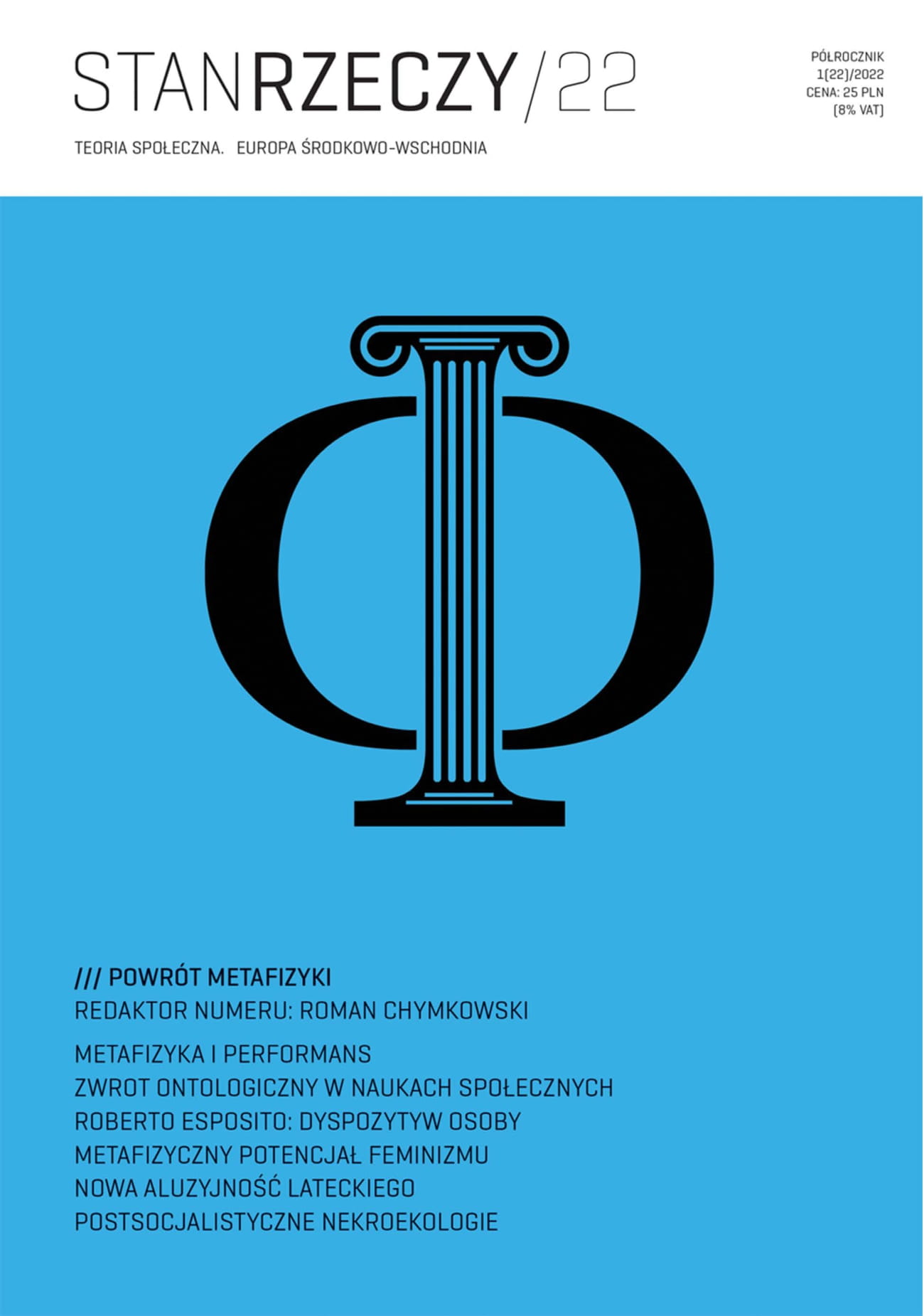Epistemologiczna i polityczna ideologiczność psychiatrii w obliczu epidemii chorób psychicznych
The Epistemological and Political-Ideological Nature of Psychiatry in the Face of the Epidemic of Mental Diseases
Author(s): Marcin Żółtowski, Bartosz MikaSubject(s): Social Sciences, Psychology, Sociology, Clinical psychology, Health and medicine and law, Sociology of Culture, Radical sociology
Published by: Wydział Socjologii Uniwersytetu Warszawskiego
Keywords: ideologia; indywidualizm; polityczność; uniwersalizacja; racjonalizacja; Fisher; Eagleton; Byung-Chul Han
Summary/Abstract: A real mental-health crisis – or a mere discursive alert in regard to a crisis – presents researchers with an opportunity to reveal the ideological nature of psychiatry. This paper is based on the concepts of Terry Eagleton and the rich achievements of Marx’s social thought. We understand ideologies as the minimum reflectivity inscribed in human practices and giving them social meaning. Ideology not only produces cognitive categories and epistemology but also reproduces social power relations. Thus, criticism of an ideology is an indication of the illusory nature of social relations themselves. The article indicates that in describing “human suffering,” a psychiatrist becomes entangled in the given society’s axionormative system, at the intersection of discursive fields, with psychiatry always being an interpretative, descriptive, and idiographic science. Both psychiatrists and social researchers indicate that modern psychiatric doctrine is not a homogeneous monolith but the result of disputes and discussions within the discipline itself, as well as of changes within society. Psychiatry is universalising, rationalising, communicating, naturalising, and limiting, and thus it has the distinctive features of ideology in the definition Eagleton proposes. The paper exposes the ideological character of psychiatry; this ideological character arises from real social relations, and makes psychiatry the litmus test of contemporary capitalist society. Our approach also allows for a more nuanced view than in previous popular concepts (that is, Fisher’s or Byung-Chul Han’s) and is sensitive to the features of psychiatry itself, with an analysis of its social role.
Journal: Stan Rzeczy
- Issue Year: 2022
- Issue No: 22
- Page Range: 219-244
- Page Count: 26
- Language: Polish

